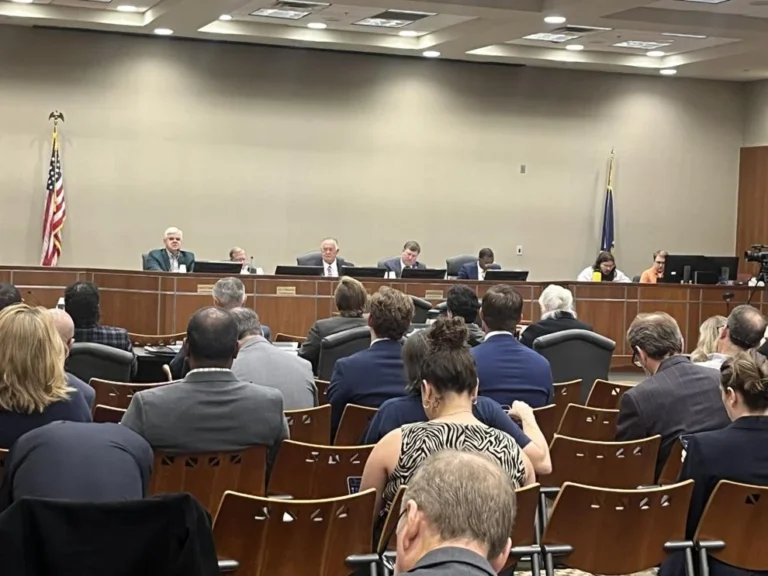By: Wesley Muller and Pam Radtke, Floodlight – Louisiana Illuminator
In a surprise agenda change for Wednesday’s meeting, the Louisiana Public Service Commission will consider terminating a statewide energy efficiency program it just recently hired a contractor to run after spending 14 years to create it.
Commissioner Mike Francis, R-Crowley, added the agenda item Monday, two days before the LPSC meets at the Cypress Bend Resort in Many. Most of the commission’s monthly meetings are held at its headquarters in Baton Rouge, but members periodically schedule hearings in different parts of the state.
“Commissioner Francis’ decision to bring this vote with virtually no notice leaves little time for public input on an issue that directly impacts household budgets and statewide energy policy,” the Alliance for Affordable Energy said in a statement issued Tuesday. The proposal would end all energy efficiency programs in the state, except for municipal-owned utilities that don’t fall under the LPSC’s jurisdiction.
The Alliance noted that residential electricity rates in Louisiana have increased roughly 45% since 2018, stressing the need for a greater emphasis on efficiency programs.
“This is the only program the commission has to help residents manage rising bills,” the group’s news release said.
In January 2024, the LPSC voted 3-2 on energy efficiency resources standards (EERC) that a consultant had worked on for over a decade at a cost of more than a half-million dollars. The policy requires utilities under the commission’s jurisdiction — such as Entergy, Cleco and Swepco — to meet certain energy savings targets each year.
For example, they can meet the standards through customer-focused upgrades such as adding new insulation to buildings or replacing inefficient heating and cooling systems.
The utilities pay for it with little-noticed energy efficiency fees they’ve charged customers for years. Entergy Louisiana customers can find those fees on their monthly statements billed as “Rider EECR-QS” and “Rider EECR-PE.”
The energy efficiency program used in Louisiana for the past decade was voluntary, and utility companies managed them with their own staff. Energy efficiency presents a dilemma for utilities because they lead to customers using less of their product, an inherent conflict of interest for companies that profit from the sale of electricity or natural gas.
The program adopted in 2024 is mandatory and uses a third-party administrator to manage and hold the utilities to the energy savings targets. The LPSC recently hired two companies, Aptim and TetraTech, to provide those services.
Francis is proposing to terminate those contracts and establish a different energy efficiency policy. In a phone interview Tuesday, he said the current policy framework is too complex and believes it will cost too much money.
“You need a lawyer and a CPA to work through all of this,” Francis said. “It’s pretty complicated.”
Francis initially opposed adopting the program in 2024 alongside Commissioner Eric Skrmetta, R-Metairie. Former Commissioner Craig Greene, R-Baton Rouge, provided the swing vote that passed the measure, which had support from the LPSC’s two Democrats, Foster Campbell of Bossier City and Davanté Lewis of Baton Rouge.
Debate on the matter at that time attracted ratepayers who filled the meeting room and chanted, demanding commissioners vote on the new program after hours of discussion. That memory wasn’t lost on Francis, who admitted his latest proposal might not be popular with some members of the public.
“I’m probably making some enemies doing this,” he said.
Commissioner Jean-Paul Coussan, R-Lafayette, who now sits on the commission in place of Greene, will likely be the deciding vote Wednesday.
“Sounds like there are several ideas being bandied about regarding the program,” Coussan said, offering few clues about how he intends to vote. “I’m anxious to hear more about the proposals.”
The program is the first of its kind in the Southeast run by a third-party administrator.
It “is especially important when it comes to both environmental protection and electricity system affordability,” said Joshua A. Basseches, an assistant professor of environmental studies and public policy at Tulane University. “Scrapping it now would not only be bad public policy, but would also set a bad precedent in terms of process.”

